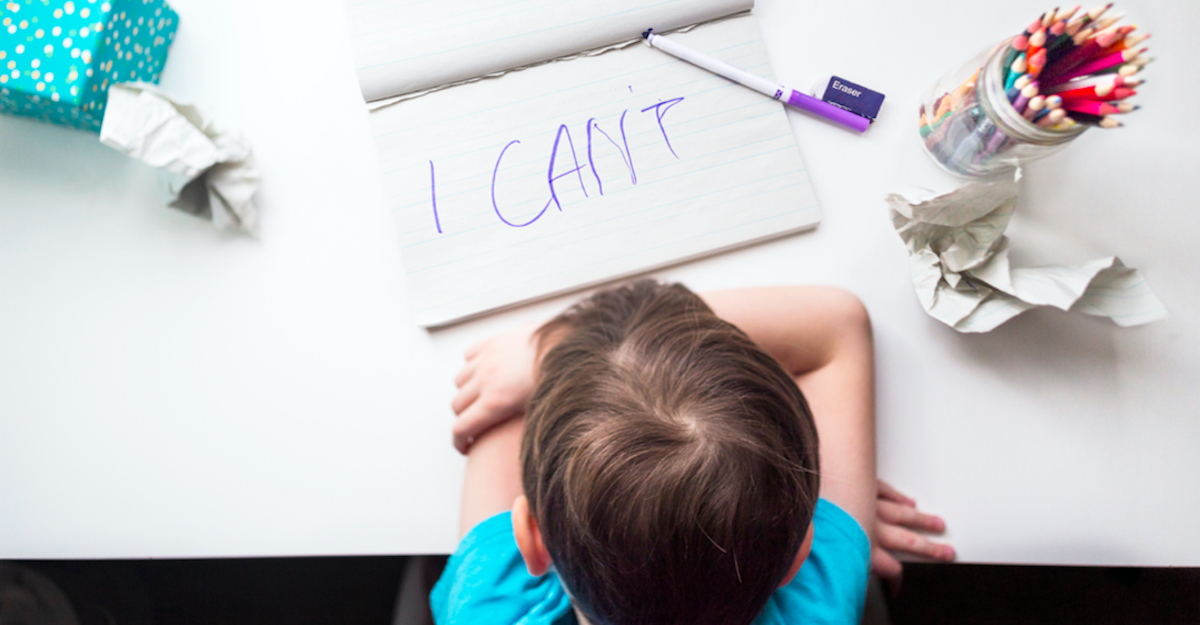Being stuck at home for months on end, replacing structured days at school with chaotic classes on a screen, not getting to see friends, and having no idea when it’s all going to end is hard enough for any student. But for those with learning difficulties and Individualized Education Programs (IEPs), the current situation can feel so overwhelming, confusing, and frustrating that some students aren’t just falling behind, they’re giving up.
“They’re struggling and we’re getting an influx of calls from parents looking for help,” according to Alex Waidelich, Specialized Academic Program coordinator with Bergen County-based BrainStorm Tutoring. “They’re at their wit’s end and saying, ‘My student is so lost they’re not even doing assignments or getting out of bed, or they’re doing virtual school in bed and they haven’t turned in an assignment in a week. Can you help me?”
One of the main issues, says Waidelich, is that modifications, accommodations, and support that have been set up for students through IEPs or 504 Plans don’t always translate to virtual school. That means it’s on parents (even more than usual) to set up their students for success from home. Here, she shares her experts advice to help caregivers do just that in 2021.
Plan Out Everything (Even Downtime!)
Now more than ever, serious structure is imperative, so break everything down, week by week, day by day, hour by hour, as much as you can, advises Waidelich. If your student has a few hours free on a Tuesday afternoon, make sure those hours go to good use. If that means using that time to give your kid a break, that’s perfectly fine … just make sure it’s scheduled. “Making a productive schedule is really helpful because they may feel they have all the time in the world because they’re not going anywhere, but every day flies by, so making sure they’re planning out their time effectively is important,” she says. “That way the student knows what to expect every day, so that it’s not a free-for-all and they don’t get lost. It helps to have a lot of structure during an unstructured time.”
 Take Mini Assessments
Take Mini Assessments
One of the many strategies Brainstorm tutors use for students in its specialized academic coaching programs is to perform multiple check-ins or “mini assessments” throughout a single session. ”If you start to notice that the student isn’t making eye contact anymore or they’re fidgeting, do a little check-in,” she explains. “‘How are you doing? Do you feel like you need a break? Can you tell me a little about the material we just covered?’ Checking in with them is so important because you don’t want them to get lost and they may be afraid to tell you that they don’t understand.”
Help Them Advocate for Themselves
While it might be tempting (and even easier) to contact to your student’s teacher on their behalf, helping them learn how to do it themselves can be more beneficial. “It’s about teaching students how to reach out to their teachers to ask for extra help or their counselors to say ‘I’m struggling, what can we do about this?’” To be sure, you can help them ask for help every step of the way, whether it’s figuring out exactly what to say, crafting an email, making sure they’ve got the correct contact info, and being there when they hit send. “Then you know it’s getting done,” explains Waidelich. “and you’re teaching them, in that moment, how to do something that they’re going to have to do the rest of their lives. So that’s the advocacy part of it -- teaching them to reach out to resources and help themselves -- but they may need our support to do that.”
Empower Them With Confidence
If a student is failing science and has a science test coming up, it might seem logical to focus on that before anything else, but try starting with something that might be easier or more enjoyable for your student first. “Give them small tasks they can accomplish. You’re teaching the student ‘You can do this,’” she says. “They feel motivated, they feel like they’re accomplishing something, then they feel like they have a little more self-confidence, and feel more capable to tackle the next thing that maybe isn’t as easy for them. I like building them up.” And, don’t forget the praise, which goes a long way. “Even if it’s something small, try and give that encouraging voice because they may not feel good about themselves, especially if they’re feeling isolated.”
 Get the Right Kind of Help
Get the Right Kind of Help
If you’ve got a student who is falling behind or giving up, and you’re considering tutoring or academic coaching, Waidelich suggests finding a professional who specializes in students with learning difficulties. “You want a tutor who is trained and has experience working with students with learning challenges and is able to address those and strategize to help them. These types of tutors are specialized in helping beyond content and making sure they aren’t getting lost,” says Waidelich, who adds that her team utilizes strategies like the mini-assessments and constant check-ins, along with customized options for students. Maybe they need to stand during a lesson, or play with a puzzle piece to give them something to do with their hands, which is often helpful for students with ADHD. All of the above goes a long way in making sure the student is staying on track, focused, and keeping up. “It’s an added element to tutoring that I think that a lot of students with learning difficulties benefit from.”
Alex Waidelich is the Specialized Academic Program Coordinator, Manager of Client Experience, and College Admissions Coach with Brainstorm Tutoring.






